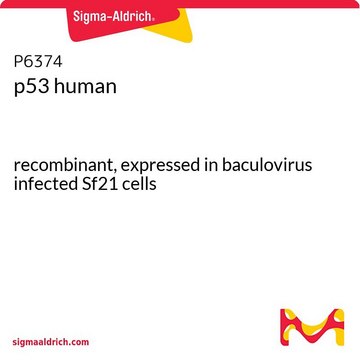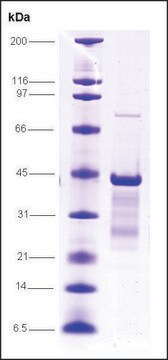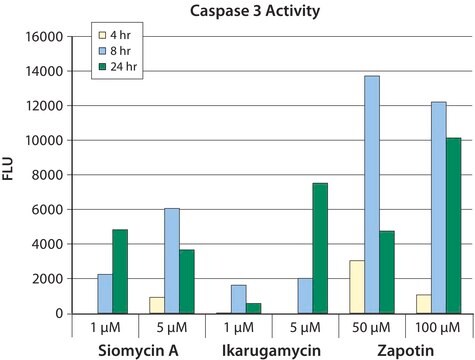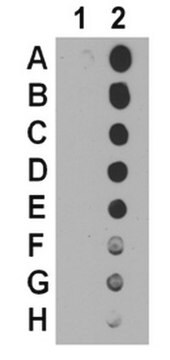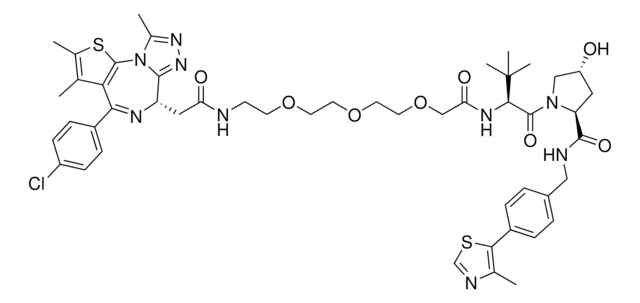SRP2077
p53 (1-363) C-terminal deletion human
recombinant, expressed in insect cells, ≥80% (SDS-PAGE)
Sinónimos:
FLJ92943, LFS1, P53, TRP53
About This Item
Productos recomendados
biological source
human
recombinant
expressed in insect cells
assay
≥80% (SDS-PAGE)
form
frozen liquid
mol wt
~41.8 kDa
packaging
pkg of 5 μg
concentration
850 μg/mL
color
clear colorless
NCBI accession no.
UniProt accession no.
shipped in
dry ice
storage temp.
−70°C
Gene Information
human ... TP53(7157)
Biochem/physiol Actions
Physical form
Preparation Note
Storage Class
10 - Combustible liquids
wgk_germany
WGK 1
flash_point_f
Not applicable
flash_point_c
Not applicable
Certificados de análisis (COA)
Busque Certificados de análisis (COA) introduciendo el número de lote del producto. Los números de lote se encuentran en la etiqueta del producto después de las palabras «Lot» o «Batch»
¿Ya tiene este producto?
Encuentre la documentación para los productos que ha comprado recientemente en la Biblioteca de documentos.
Artículos
We present an article about how proliferating cells require the biosynthesis of structural components for biomass production and for genomic replication.
Nuestro equipo de científicos tiene experiencia en todas las áreas de investigación: Ciencias de la vida, Ciencia de los materiales, Síntesis química, Cromatografía, Analítica y muchas otras.
Póngase en contacto con el Servicio técnico